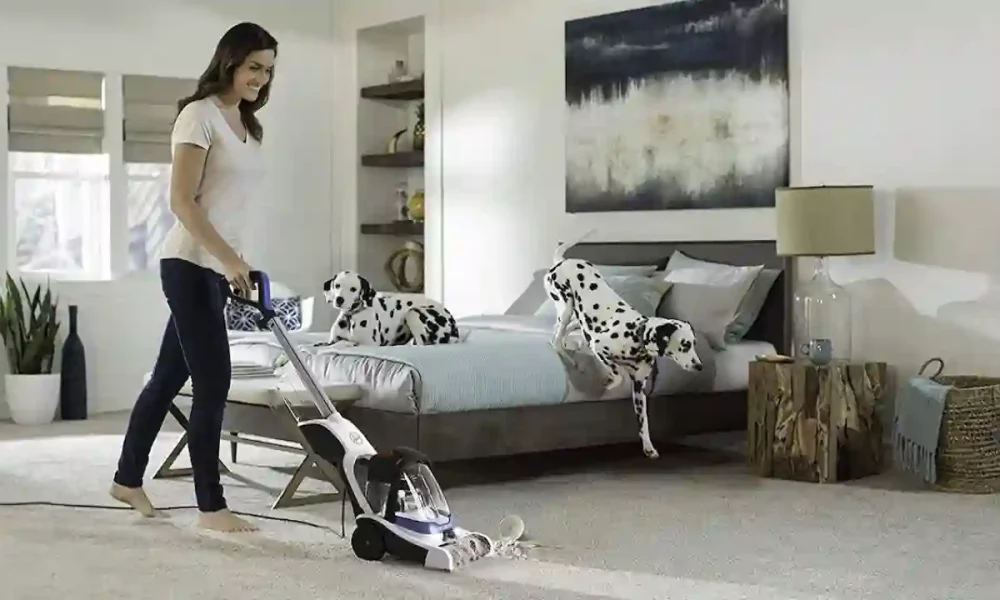
Carpet Cleaning for Homes with Basements: Moisture Control
Basements are versatile spaces in our homes, serving various purposes from storage to recreational areas. However, they often present unique challenges when it comes to carpet cleaning due to moisture issues. Basements tend to be more susceptible to moisture problems, which can lead to mold, mildew, and unpleasant odors in your carpets. In this article, we’ll explore effective carpet cleaning strategies for homes with basements, focusing on moisture control and maintenance to ensure a clean and healthy environment.
Understanding Basement Moisture
Basements are prone to moisture issues due to their underground location and exposure to soil and groundwater. Common causes of basement moisture include:
- Humidity: High humidity levels in basements can create a breeding ground for mold and mildew.
- Seepage: Water can seep through foundation cracks and gaps, leading to damp conditions.
- Flooding: Basements are vulnerable to flooding during heavy rains or plumbing incidents, which can saturate carpets and padding.
- Condensation: Cold basement surfaces can cause condensation to form, leading to damp carpets and potential mold growth.
Effective Moisture Control
Controlling moisture is essential to prevent carpet damage, mold growth, and unpleasant odors in your basement. Here are steps to effectively manage basement moisture:
- Proper Ventilation: Ensure your basement is adequately ventilated to reduce humidity levels. Use fans and dehumidifiers if needed.
- Waterproofing: Consider waterproofing your basement walls and floors to prevent water intrusion. Professional waterproofing services can help seal cracks and create a moisture barrier.
- Gutters and Downspouts: Maintain gutters and downspouts to direct rainwater away from your foundation, preventing water from entering the basement.
- Drainage Systems: Install drainage systems such as French drains or sump pumps to manage excess water and prevent basement flooding.
- Insulation: Properly insulate your basement to prevent condensation on cold surfaces. Insulated walls and flooring can reduce moisture buildup.
- Seal Foundation Cracks: Seal any cracks or gaps in your basement’s foundation to prevent water seepage.
- Monitor Humidity: Use a hygrometer to monitor humidity levels in your basement. Maintain humidity levels below 60% to discourage mold growth.
Carpet Cleaning Strategies for Basements
Once you’ve established effective moisture control measures, you can focus on carpet cleaning and maintenance. Here are some carpet cleaning strategies tailored to basements:
- Regular Vacuuming: Vacuum your basement carpet at least once a week to remove dirt and dust. Use a vacuum cleaner with a HEPA filter to capture fine particles.
- Immediate Spill Cleanup: Address spills and stains promptly to prevent them from setting in. Blot the area with a clean, dry cloth, and use a carpet cleaner appropriate for your carpet type.
- Mold and Mildew Prevention: Regularly inspect your basement for signs of mold or mildew. If you notice any growth, address it immediately with appropriate cleaning solutions.
- Professional Cleaning: Schedule professional carpet cleaning services for your basement at least once a year. Professional cleaners have the expertise and equipment to deep clean and sanitize carpets effectively.
- Carpet Removal: In cases of severe flooding or persistent moisture problems, you may need to consider removing and replacing the basement carpet and padding to prevent mold and odors.
- Area Rugs: Place area rugs in high-traffic areas of your basement to protect the carpet underneath. Rugs can be easily removed and cleaned if necessary.
- Carpet Tiles: Consider using carpet tiles in your basement. These modular tiles are easy to replace if a portion of the carpet becomes damaged or wet.
- Use Fans and Dehumidifiers: In particularly humid seasons or climates, use fans and dehumidifiers in your basement to maintain proper moisture levels.
Carpet Cleaning Products for Basements
Choosing the right carpet cleaning products for your basement is essential, especially when dealing with potential mold and mildew issues. Here are some suitable products:
- Mold and Mildew Cleaners: Use mold and mildew cleaning products that are safe for carpets to address any growth in your basement.
- Carpet Shampoos: Choose carpet shampoos specifically designed for your carpet type. Many are formulated to combat mold and mildew.
- Enzyme Cleaners: Enzyme-based cleaners can effectively break down organic stains and odors, which are common in basements.
- Carpet Disinfectants: Consider using carpet disinfectants to sanitize your basement carpet, especially if it has been exposed to moisture.
Safety Precautions
When cleaning carpets in a basement with potential moisture issues, take safety precautions seriously:
– Wear Protective Gear: Use gloves and a mask when cleaning carpets, especially if you’re dealing with mold or mildew.
– Adequate Ventilation: Ensure proper ventilation while cleaning to prevent inhaling fumes from cleaning products.
– Follow Product Instructions: Read and follow the instructions on cleaning products carefully.
– Seek Professional Help: If you’re uncertain about handling mold or severe moisture problems, consult a professional mold remediation or carpet cleaning service.
Conclusion
Basements can be valuable and versatile spaces in your home, but they require special attention when it comes to carpet cleaning and moisture control. By effectively managing moisture, implementing proper cleaning routines, and using suitable cleaning products, you can maintain a clean and healthy environment in your basement.
Remember that moisture control is the key to preventing carpet damage and mold growth. Regular inspection, maintenance, and professional cleaning services can help you enjoy a clean and inviting basement while protecting your carpet investment. A well-maintained basement provides comfort and adds value to your home, making it a space you can fully enjoy.